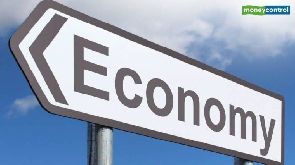The coronavirus epidemic continues to disrupt life across the world. The disruption is all but gathering steam in affected even virus-free African countries. The rate of infection is lower on the continent as compared to Europe, Asia and parts of the Americas, where lockdowns are in place.
The impact on gatherings is an area that most African governments have moved to control. A number of business conferences were cancelled on account of the pandemic. A number of governments have also declared State of Emergencies.
South African president Cyril Ramaphosa extensively outlined the economic impact of the pandemic on the economy – mining, tourism – in his first address on Saturday. In Nigeria, the government is looking to revise the current budget.
Our main coronavirus hub is seized with major developments around the epidemic. This piece will focus on the impact on business with emphasis on a raft of incidents that have been undertaken.
The International Monetary Fund on Monday April 13 announced debt relief for a number of countries across the world citing the impact of COVID-19 on economies and livelihoods.
A statement issued by Kristalina Georgieva, IMF Managing Director said the package applied to the poorest and most vulnerable members to cover their debt obligations. The list of comprised 25 countries out of which 19 were African nations.
They included: Benin, Burkina Faso, Central African Republic, Chad, Comoros, Congo, D.R., The Gambia, Guinea, Guinea-Bissau, Liberia, Madagascar, Malawi, Mali, Mozambique, Niger, Rwanda, São Tomé and Príncipe, Sierra Leone, and Togo.
The non-African bloc are: Afghanistan, Haiti, Nepal, Solomon Islands, Tajikistan and Yemen.
In Georgieva’s words: “Today, I am pleased to say that our Executive Board approved immediate debt service relief to 25 of the IMF’s member countries under the IMF’s revamped Catastrophe Containment and Relief Trust (CCRT) as part of the Fund’s response to help address the impact of the COVID-19 pandemic.
“This provides grants to our poorest and most vulnerable members to cover their IMF debt obligations for an initial phase over the next six months and will help them channel more of their scarce financial resources towards vital emergency medical and other relief efforts.
“The CCRT can currently provide about US$500 million in grant-based debt service relief, including the recent US$185 million pledge by the U.K. and US$100 million provided by Japan as immediately available resources.
“Others, including China and the Netherlands, are also stepping forward with important contributions. I urge other donors to help us replenish the Trust’s resources and boost further our ability to provide additional debt service relief for a full two years to our poorest member countries.”
Meanwhile reports from Ghana indicate that the IMF has approved a $1 bn facility to help the West African country combat the coronavirus pandemic. When President Akufo-Addo weeks back announced a $100m COVID-19 war chest, Finance Minister Ken Ofori-Atta told parliament the amount needed to be raised with support of international lenders.
The International Monetary Fund on Monday said its executive board had approved $1 billion in emergency funding for Ghana and $442 million for Senegal to enable both countries to respond to the rapidly-spreading coronavirus pandemic.
Ghana was at high risk of debt distress, the IMF said in a statement. It said the large disbursement of emergency aid would help the West African countries address urgent fiscal and balance of payments needs, and catalyze support from other development partners.
It said it stood ready to provide further policy advice and further support to both countries as needed.
Africa News of Wednesday, 15 April 2020
Source: africanews.com

















